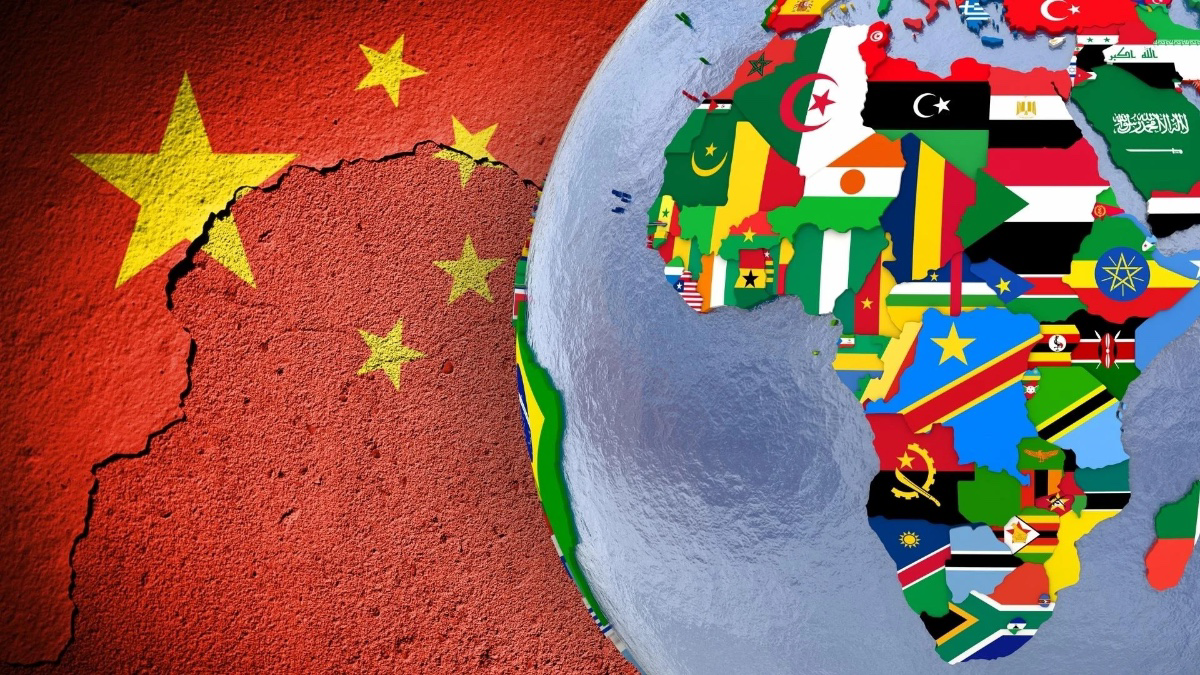
FIFTY-THREE African countries are now eligible to export to China duty-free, with Beijing’s expanded zero-tariff policy being heralded as a milestone in South-South co-operation.
Promising access to one of the world’s largest consumer markets, the initiative positions itself as a gateway to Africa’s economic growth.
But a deeper question remains: Will these trade preferences help Africa to industrialise or reinforce its dependence on raw commodity exports? writes Rafael Carvalho.
He notes that, on paper, the policy offers clear benefits.
African exporters — particularly in agriculture, minerals and energy — gain a price edge.
“Yet the challenge lies beneath the surface,” Carvalho continues.
“Most African economies lack the industrial base, power infrastructure and logistics systems to take full advantage of these incentives.”
Without investment in processing capacity and value addition, duty-free access risks simply accelerating the export of unprocessed resources.
- The brains behind Matavire’s immortalisation
- Red Cross work remembered
- All set for inaugural job fair
- Community trailblazers: Dr Guramatunhu: A hard-driving achiever yearning for better Zim
Keep Reading
Energy development is central to this dilemma.
Africa’s ability to leverage on trade opportunities depends on its capacity to convert natural wealth to industrial output.
From Nigeria’s gas monetisation drive to Mozambique’s LNG expansion and cross-border projects in Senegal and Mauritania, a shift is underway.
These initiatives must feed into broader industrial growth — such as petrochemicals, power generation and manufacturing.
The African Continental Free Trade Area adds another layer of promise, offering regional integration and economies of scale.
Coupled with China’s open-door policy, it creates a unique moment for Africa to align trade and energy strategies for long-term gains.
As African Energy Week 2025 approaches — set to run from September 29 to October 3 — the continent has a chance to reset the narrative.
The real test of zero-tariff access isn’t in trade volume alone — it’s in whether it helps Africa to build industries, create jobs and move up the global value chain.
A few weeks ago, many African countries participated in the China-Africa Economic and Trade Expo, held from June 12 to 15 at the Changsha International Convention and Exhibition Centre in Hunan province, China — an event that was expected to draw over 4 600 exhibitors and more than 40 000 attendees.
Diagonally adjacent to the Zimbabwean stand were Zambians advertising the majestic Victoria Falls.
None of that was being showcased at the Zimbabwean stand.
The Zambians had a huge TV screen displaying the country’s mineral resources and other points of attraction, and its value proposition was clear for all to see. To the left of the Zimbabwean stand was Lesotho, advertising its tourist attractions.
Mozambique was highlighting its geographical advantage, boasting that its ports give southern Africa easy access to international markets.
Meanwhile, Malawi showcased its rich cultural heritage.
Rwanda had the biggest stand — probably spanning two booths.
It showed seriousness.
The Zimbabwean stand, however, was deeply disappointing.
First of all, whoever designed the stand deserves their day in court because it was such a hurried shoddy job — it reflected a lack of seriousness.
Reliable sources say Foreign Affairs and International Trade minister Amon Murwira was appalled by the state of the stand that he almost ditched it.
To begin with, many of those at the Zimbabwean stand were exhibiting curios.
A tea company had a single attendant handing out macadamia nuts for visitors to taste.
At the ZimTrade stand, there was only one person, seemingly in charge of everything.
Behind him was a TV screen so tiny that one had to strain their eyes to see what it was showing.
The Tourism ministry was nowhere to be seen. No one was there to promote our verdant attractions such as Victoria Falls, Great Zimbabwe, Hwange National Park, Gonarezhou, the Nyanga Mountains or the Vumba Mountains.
China may have many tourist attractions, but its pride is its people, who are its best foot forward in showing hospitality and the rich cultural heritage of this majestic ancient nation.
Zimbabwe’s stand was, frankly, trashy.
The Mines ministry was conspicuously absent.
All the gold we boast about, the diamonds, chrome, platinum — you name it — were not represented.
Winston Chitando and his team were nowhere in sight.
No mining companies were exhibiting — unless, perhaps, they participated in thematic or supporting events behind the scenes.
The so-called second republic is bombarding anyone who cares to listen with the message “Zimbabwe is open for business,” yet the regime fails to showcase what the country has to offer at key forums.
China has opened its arms, ready to embrace Zimbabwean products.
But it seems Harare is asleep at the wheel.






